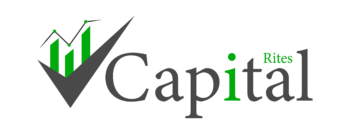
Tax payments can be a daunting task, especially when it comes to making sure you have enough money saved. With the recent rise in interest rates on Savings Accounts, it’s important to consider how this impacts your tax payments and the best savings account for you.
This article will explore how the rising savings account interest rate affects one’s tax payment. We will also look at which type of savings accounts are most beneficial when saving for taxes. Finally, we will discuss potential strategies to maximize your savings and reduce any possible tax-related stress.
How Does a Higher Savings Account Interest Rate Impact Tax Payments?
- Higher savings account interest rates can help reduce the amount of taxes you owe. A Savings Account with higher interest rates enables you to earn more money on your balance over time without investing in riskier options like stocks and mutual funds. This additional income can be used to cover any tax liabilities due from year-to-year.
- By taking advantage of high-interest savings accounts, you can increase the potential return on your saved money which can help offset the cost of taxes when they become due. Furthermore, saving in an account with a higher rate provides better protection against inflation which helps protect the value of your money over time.
- Saving for taxes in an account with a higher interest rate allows you to withdraw funds without penalty should an unexpected expense arise. This is beneficial if you need extra money and want to avoid sinking into your long-term savings or investments.
- When figuring out which savings account is best for you to minimize taxes, consider factors like minimum balances, rates, and fees. Higher interest rates usually come with a higher minimum balance and more restrictive withdrawal policies that may not suit your situation.
- Lastly, it’s important to remember that tax laws and regulations can change frequently. It is vital to stay up-to-date with the latest tax law changes to maximize your savings account and minimize taxes as much as possible.
- Ultimately, the higher interest rate associated with a Savings Account can be beneficial in reducing your tax payments. Be sure to research and compare different savings accounts to decide the best for your needs.
- By understanding what type of savings account is best for you, you can make the most of your hard-earned money and have confidence knowing that your taxes are covered.
A well-chosen and best Savings Account will provide more return on funds and ensure that you have enough money saved to cover any liabilities when they come due. Factors such as minimum balances and fees should also be considered to ensure you pick the right account for your needs. Finally, staying informed about current tax laws and regulations can help you optimize your savings strategy and minimize taxes.
Choosing the Best Savings Account for Your Needs
Many different types of savings accounts and options are available when saving money. Each account offers unique benefits and features that make it more suitable for some people than others. In order to ensure you get the most out of your hard-earned money, it’s important to choose a savings account that best fits your needs.
- The first thing to consider when looking for a savings account is its associated interest rate. Savings accounts generally have competitive interest rates; however, some can have higher rates than others depending on how much money you keep in the account and the type of account you choose. The greater the interest rate amount, the more money you will earn from your saved funds over time which can help reduce any tax payments you may
- In addition to looking at interest rates, other important factors to keep into consideration when choosing the best savings account include minimum balances, fees, and withdrawal policies.
For example, if you only have a small amount to deposit, then a savings account with low minimum balance requirements might be more suitable for your needs. On the other hand, if you want maximum flexibility when withdrawing funds from your account, look for an account with few restrictions on withdrawals. Fees associated with certain accounts should also be considered so you don’t lose money due to excessive charges.
- Finally, staying informed about changes in tax laws and regulations is important, which can affect how much taxes you owe and how much money you’ll save in the long run. Keeping up-to-date with tax regulations can help ensure you make the most out of your savings account and minimize taxes as much as possible.
Conclusion
Several factors must be considered when choosing the best savings to account for your needs. Interest rates, minimum balances, fees, withdrawal policies, and tax laws should all be considered when deciding. With the right combination of these factors, you can make sure you get the most out of your hard-earned money and have confidence in knowing that your taxes are taken care of.
The higher interest rate associated with a Savings Account can be beneficial in reducing your tax payments, so researching and comparing different savings accounts is key to finding the perfect one for you.






